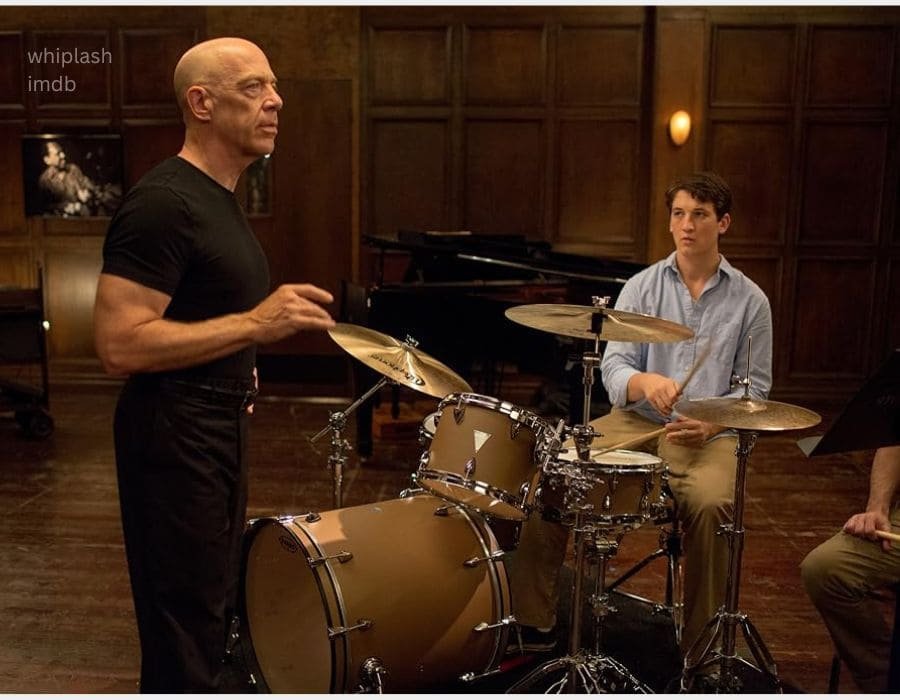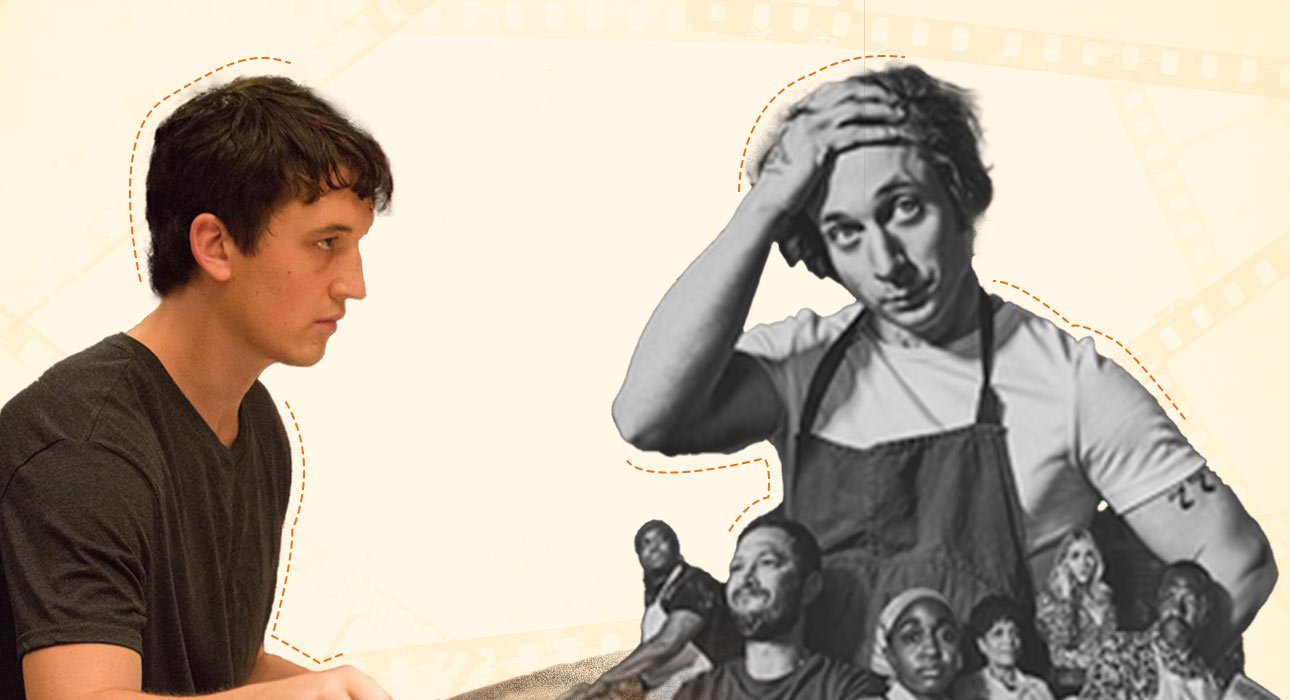The connotation of “Obsession beats Talent” represents a strenuous blend of natural ability, the nature of human potential, and striving to succeed. The protagonists of the movie “Whiplash” and the series “The Bear” navigate their journey of compulsive drive and relentless dedication toward their passion. This article dives into understanding how the dual nature of obsession can surpass the advantages of innate talent by exploring the psychological domains that define the characteristics of the protagonists, Andrew Neiman (Whiplash, the movie) and Carmy Berzatto (The Bear, the series).
What does it mean by “Obsession beats Talent”?
Talent is viewed as an innate attribute that people are born with. Talent is an anchor that may provide individuals an advantage in specific areas of interest, but it cannot be identified as a single key determinant of long-term success. Obsession, in contrast, works regardless of talent. It is an unwavering force pushing people to practice, refine, and surpass their perceived limitations. Obsession drives human activities, making it a more reliable indicator of success than mere talent. Eventually, achieving mastery because of innate talent can become an illusion because talent without effort may stagnate an individual’s potential.
Talent might give one a head start, but obsession ensures continuous improvement. The talented but unmotivated individual stagnates, but an obsessed person systematically improves to surpass the naturally gifted.
Obsession develops a growth mindset in an individual that challenges them to step out of their comfort zone and remain committed despite setbacks and failures, leading to more significant achievement. According to the theory of deliberate practice by Anders Ericsson, Talent might give one a head start, but obsession ensures continuous improvement. The talented but unmotivated individual stagnates, but an obsessed person systematically improves to surpass the naturally gifted.
This psychological reality drives home the philosophical point that obsession trumps talent in the long run. While obsession can be mighty, it is not virtuous by nature. Obsession may cause burnout, a sense of disequilibrium, and even destruction. The Aristotelian notion of the “Golden Mean” makes a virtue of the middle course; thus, unchecked obsession turns dangerous. It’s about distinguishing between a healthy passion and a toxic fixation.
Nevertheless, when channeled constructively, obsession transforms individuals. It aligns with Kantian autonomy, emphasizing that freedom comes from self-imposed discipline. An obsessed individual willingly submits to rigorous training, discomfort, and sacrifice, embodying Kant’s principle of self-determination (Ericsson et al., 1993).
“Whiplash” & “The Bear” Through a Psychological Lens
Both “Whiplash” (2014) and “The Bear” (the series) explore the idea that “Obsession beats Talent” by portraying protagonists whose relentless drive to achieve excellence pushes them beyond their natural abilities. Their narratives reveal how talent alone is never enough, and raw obsession can lead to mastery, but often at the cost of personal well-being. “Whiplash” and “The Bear” portray that obsession rather than just raw talent is what leads an individual to greatness.

In the movie “Whiplash,” Andrew Neiman is a young jazz drummer at the prestigious Shaffer Conservatory. With optimal natural talent, Andrew consistently strives to be one of the greatest drummers ever. His mentor, Terence Fletcher, recognizes this and pushes him to the limits of what he thought was possible. Fletcher does not reward talent; he seeks obsession and resilience. His brutal teaching techniques included verbal abuse, physical intimidation, and psychological manipulation in the sense that he sought to break down the weak ones while forging the reluctant ones.
The protagonist here is driven by an unhealthy obsession, which leads him closer to a manic state. He virtually withdraws from society, physically tortures his hands, and survives a car crash only to crawl on stage to receive his punishment. His worth is thus ultimately granted by his mentor, Terence Fletcher.

In the series “The Bear,” Carmy Berzatto, a world-class chef, takes over his late brother’s failing sandwich restaurant to transform it into a renowned one. He has Michelin-star experience, which means he possesses raw talent and technical skills. The series quickly demonstrates that talent alone is insufficient; Carmy needs obsession to turn a dysfunctional kitchen into a refined operation. Carmy is overwhelmed by his compulsion to excellence in cooking, but the core of his conflict lies in the throes of pain and trauma.
He suffers from anxiety attacks, sleepless nights, and his inability to relate with anyone on a healthy level. His psyche is brittle and full of incessant self-doubt and self-expectation because of loss in life and expectations in the workplace.
Both characters depict that artistry is achieved at the cost of self-destruction. Andrew fails to accept mediocrity and succumbs to the suffering of his obsession in the pursuit of mastery. In contrast, Carmy’s perfectionism compels him to keep evolving and becoming at the cost of isolation and burnout.
Salient features that make their narratives so striking
Mentor-Mentee Relationship: Brutality vs. Guidance
In “Whiplash,” Fletcher is a vicious, abusive mentor who believes pushing students to their limits will force them to become legends. Fletcher’s teaching method revolves around extreme negative reinforcement. He believes that greatness only surfaces through suffering, so he pushes Andrew to break through public humiliation in the scenes where he throws a chair at him and slaps him in tempo. Some scenarios depicted emotional abuse, like gaslighting and insulting his worth, as well as unrealistic expectations. Fletcher states ‘There are no two words in the English language more harmful than ‘good job,'” emphasizing that flattery leads to lazy work. At first, the verbal attacks make Andrew compulsive and persistent, but eventually, it creates fear, loneliness, and suicide tendency. Fletcher’s mentorship is built on humiliation, fear, and psychological torment, breaking Andrew down until he either collapses or transcends.
In “The Bear,” Carmy’s mentorship is less direct, where his mentors are people from his past, particularly his sadistic former employer and his internal standards. He then fails to mentor his kitchen staff well, often repeating the same intensity and perfectionism he was subjected to. Carmy’s criticism is identical to Fletcher’s, but instead, it is layered. His perfectionism leads to high-pressure communication on his staff, “crunching” them and exploding into tantrums when standards aren’t met. Unlike Fletcher, Carmy does not aim to demolish his team but to build them up to greatness.
Drive for Perfectionism: Art vs. Control
Andrew’s pursuit of drumming mastery is entirely about technical perfection and proving himself worthy in Fletcher’s eyes. His drive is external, and he expects recognition from his mentor. The pursuit of perfection for Carmy is a symbiotic amalgamation of both artistry and control. He cooks to impose order upon chaos, especially following his brother’s suicide. Perfecting food is how he achieves that.
Outcomes of Relentless Obsession: Victory vs. Disaster
Whiplash ends with Andrew achieving a moment of true greatness in an intense drum solo, and Fletcher finally accepts him. Alas, this comes at the cost of his soul; his obsession has consumed him. Carmy succeeds professionally, transforming his restaurant into a fine dining venue, but to the detriment of his personal life. He realizes that his obsession has estranged him from the world and ends in a dramatic emotional meltdown.
Conclusion
The exploration of “Obsession beats Talent” through the stories of Andrew Neiman in “Whiplash” and Carmy Berzatto in “The Bear” reveals the powerful duality within the pursuit of excellence. Obsession, when harnessed with relentless commitment, surpasses the limitations of talent. It drives individuals to exceed their natural abilities, refining skills beyond their perceived potential. The dual nature of obsession becomes evident; it is both the source of greatness and the catalyst for personal destruction. It transforms raw talent into mastery, yet unchecked obsession undermines the very humanity that fuels it.

Both Andrew and Carmy have a single-minded pursuit for perfection that puts them beyond the reach of mere limits. This obsession propels them to excel in their crafts, and the cost is steep. For Andrew, his obsession propels him all the way to isolation and emotional breakdown into a place where the very pursuit of greatness is an all-consuming force that whittles away his well-being. For Carmy, the obsession with perfecting his restaurant alienates him from relationships and causes intense psychological strain, ultimately leading to a tragic confrontation with his inner turmoil.
In the end, both characters demonstrate that obsession can propel people to unprecedented heights, but it is not without its perilous toll. The balance lies in how obsession is channeled—whether it is a source of growth or a force that consumes all that is good in life. Thus, obsession, when allowed to flourish unchecked, maybe the very thing that beats talent, but it also risks leaving nothing but ruins in its wake.
References +
- Ericsson, K. A., Krampe, R. T., & Tesch-Römer, C. (1993). The role of deliberate practice in the acquisition of expert performance. Psychological Review, 100(3), 363–406. https://doi.org/10.1037/0033-295x.100.3.363
- Ramdani, L. a. M., Nuriadi, N., & Fitriana, E. (2023). An analysis of conflict of the main character in Whiplash movie by Damien Chazelle. Jurnal Ilmiah Profesi Pendidikan, 8(4), 2064–2070. https://doi.org/10.29303/jipp.v8i4.1645













Leave feedback about this